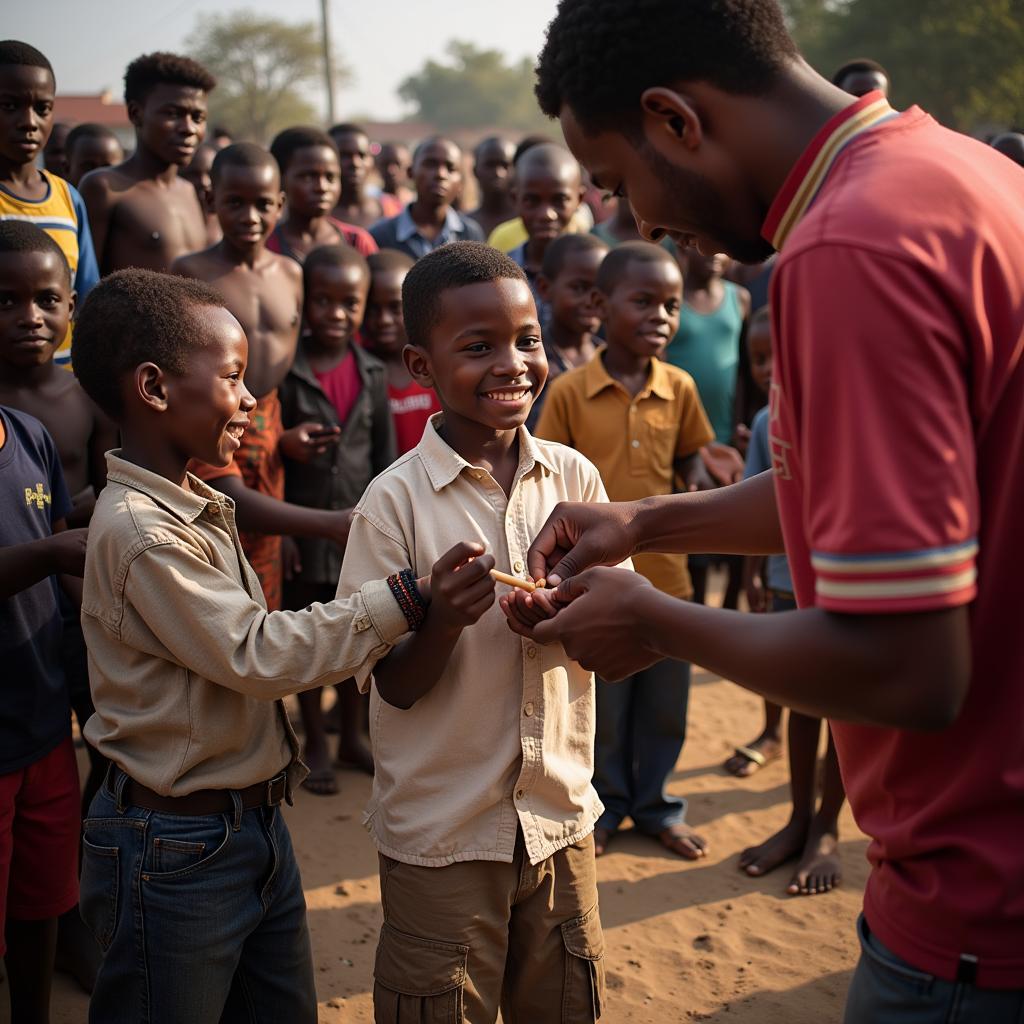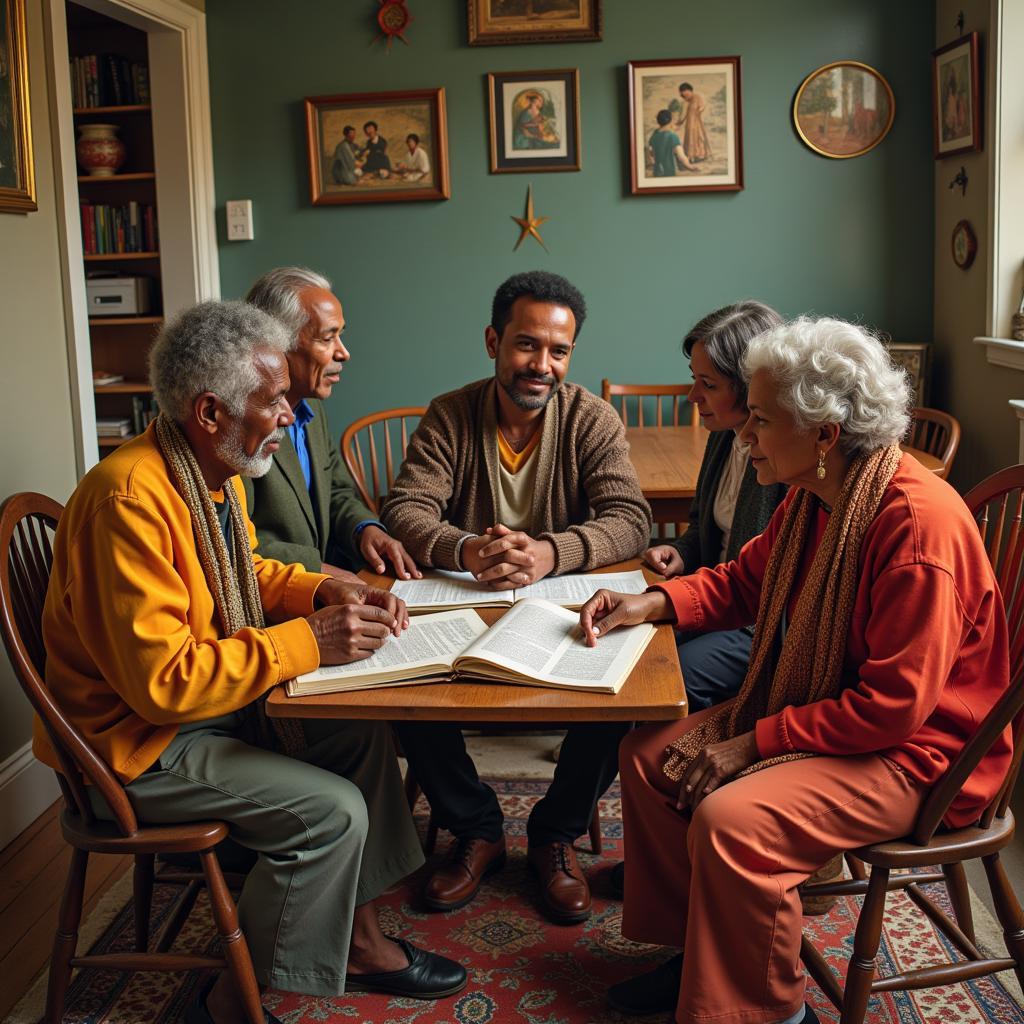Exploring the Rich Tapestry of African Ceremonies
African Ceremonies are a vibrant and integral part of the continent’s diverse cultures. They offer a fascinating glimpse into the beliefs, values, and traditions that have shaped African societies for centuries. From birth to death, and everything in between, these rituals mark significant life events and transitions, connecting individuals to their communities and ancestors.
The Significance of African Ceremonies
African ceremonies play a crucial role in maintaining social cohesion and transmitting cultural knowledge across generations. They reinforce community bonds, celebrate shared heritage, and provide a framework for understanding the world. These rituals often involve elaborate costumes, music, dance, storytelling, and symbolic acts that carry deep meaning. These ceremonies aren’t mere spectacles; they’re living testaments to the enduring power of tradition. african ceremonies list
Rites of Passage: Marking Life’s Milestones
Many African ceremonies mark critical transitions in a person’s life. Birth, puberty, marriage, and death are all occasions for significant rituals. These rites of passage often involve symbolic acts of purification, initiation, or transformation, signifying the individual’s new status within the community. For instance, some cultures have elaborate coming-of-age ceremonies that prepare young people for adulthood.
What is the purpose of rites of passage? They serve as a bridge between different stages of life, helping individuals navigate these transitions with the support of their community.
 African rites of passage strengthen community bonds and pass down traditions through generations.
African rites of passage strengthen community bonds and pass down traditions through generations.
Diversity and Regional Variations
While there are common themes and elements that connect African ceremonies, there’s also incredible diversity across the continent. Each ethnic group and region has its own unique customs and practices. From the vibrant masquerades of West Africa to the intricate beadwork of the Maasai, the tapestry of African ceremonies is rich and varied. african baby naming ceremony
Exploring Specific Ceremonies
Let’s delve into some specific examples of African ceremonies:
- Naming Ceremonies: These celebrate the arrival of a new life and often involve bestowing a name with significant meaning.
- Marriage Ceremonies: These rituals unite two families and symbolize the beginning of a new chapter. They often involve elaborate displays of wealth and status.
- Funeral Rites: These ceremonies honor the deceased and help the community cope with loss. They often involve elaborate rituals and expressions of grief.
“Ceremonies are the glue that holds African societies together,” says Dr. Abena Osei, a renowned anthropologist specializing in African cultures. “They provide a sense of belonging and continuity, linking the past, present, and future.”
The Role of Music and Dance
Music and dance are integral to many African ceremonies. They provide a powerful means of expression, communication, and connection to the spiritual realm. The rhythmic drumming, vibrant singing, and energetic movements create an atmosphere of celebration and transcendence.
What are some common instruments used in African ceremonies? Drums, rattles, flutes, and stringed instruments are frequently used to create the distinctive soundscapes of these rituals.
Preserving Cultural Heritage in a Changing World
In today’s rapidly changing world, preserving traditional African ceremonies is more important than ever. These rituals are a vital part of the continent’s cultural heritage and offer valuable lessons about community, spirituality, and respect for tradition.
“It’s crucial to ensure that these ceremonies are passed down to future generations,” adds Dr. Osei. “They are a source of strength and identity for African people.” african fuck black pussy
Conclusion
African ceremonies are a testament to the continent’s rich cultural heritage. They provide a window into the diverse beliefs, values, and traditions that have shaped African societies for centuries. From rites of passage to celebrations of life and death, these rituals continue to play a vital role in connecting individuals to their communities and ancestors. african gods series
FAQ
- What is the significance of masks in African ceremonies?
- How do African ceremonies differ from region to region?
- What are some common themes found in African ceremonies?
- How are young people involved in traditional ceremonies?
- What is the role of elders in preserving cultural traditions?
- How are African ceremonies adapting to modern influences?
- Where can I learn more about specific African ceremonies?
Need assistance? Contact us 24/7: Phone: +255768904061, Email: kaka.mag@gmail.com, or visit us at Mbarali DC Mawindi, Kangaga, Tanzania.
